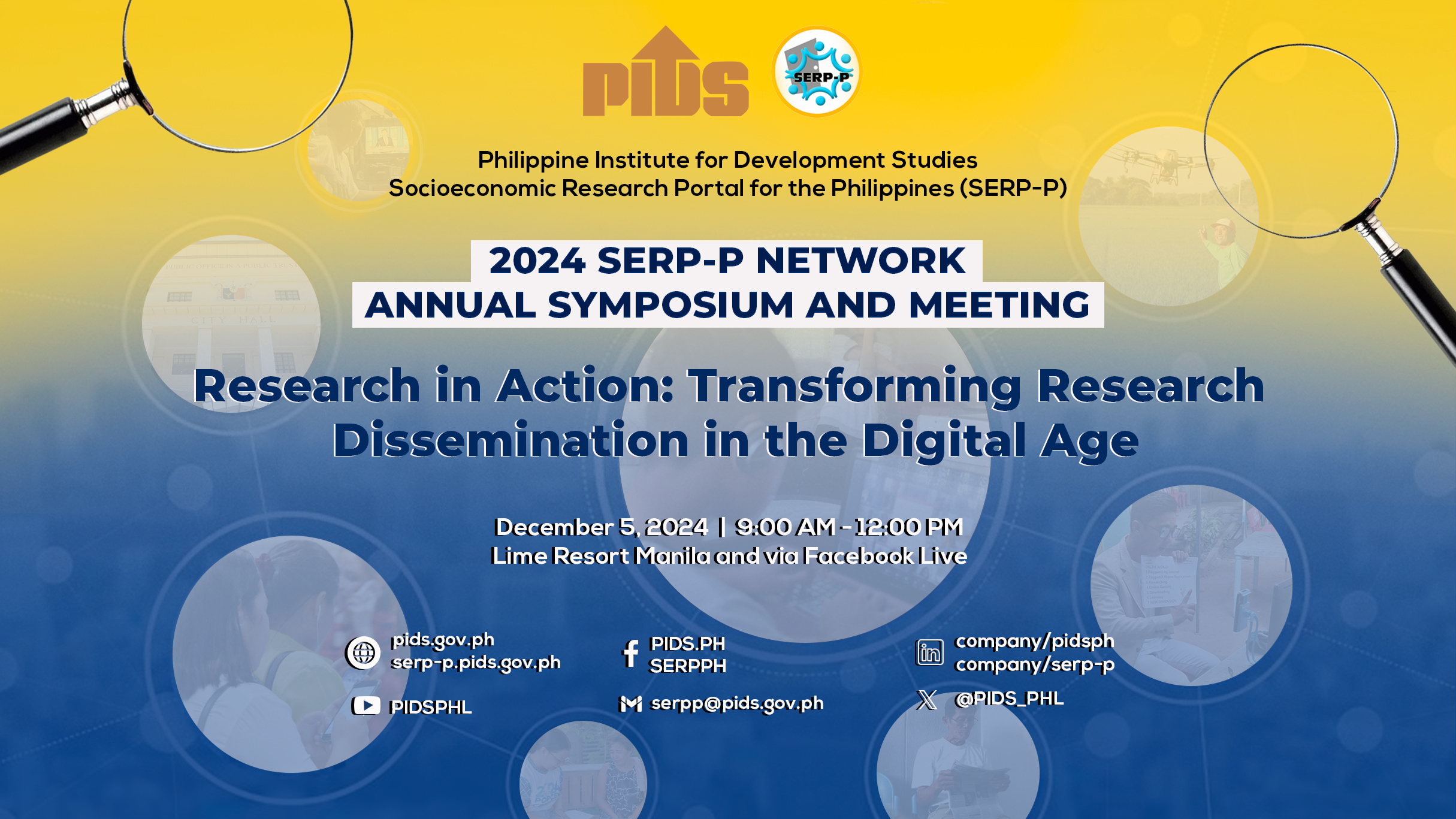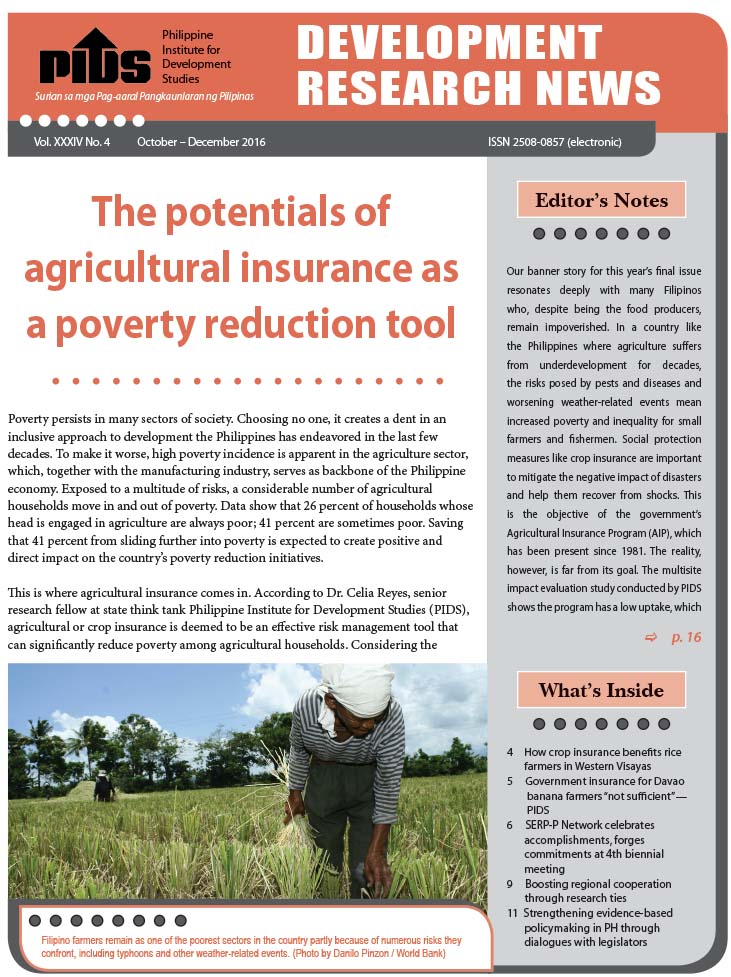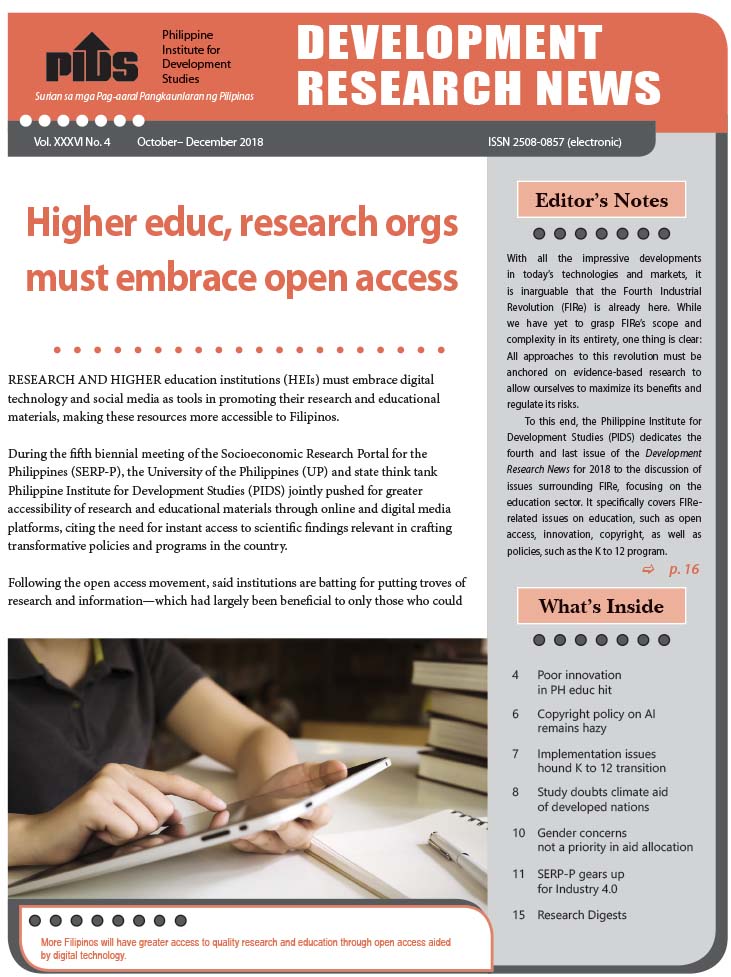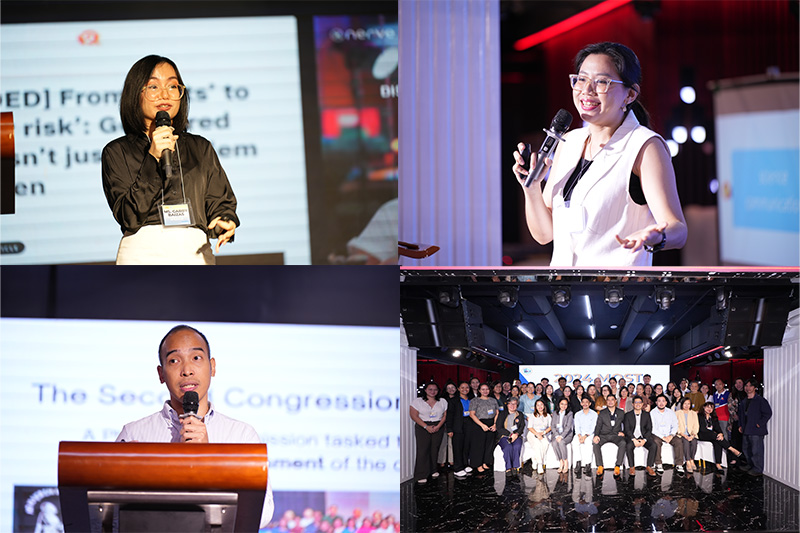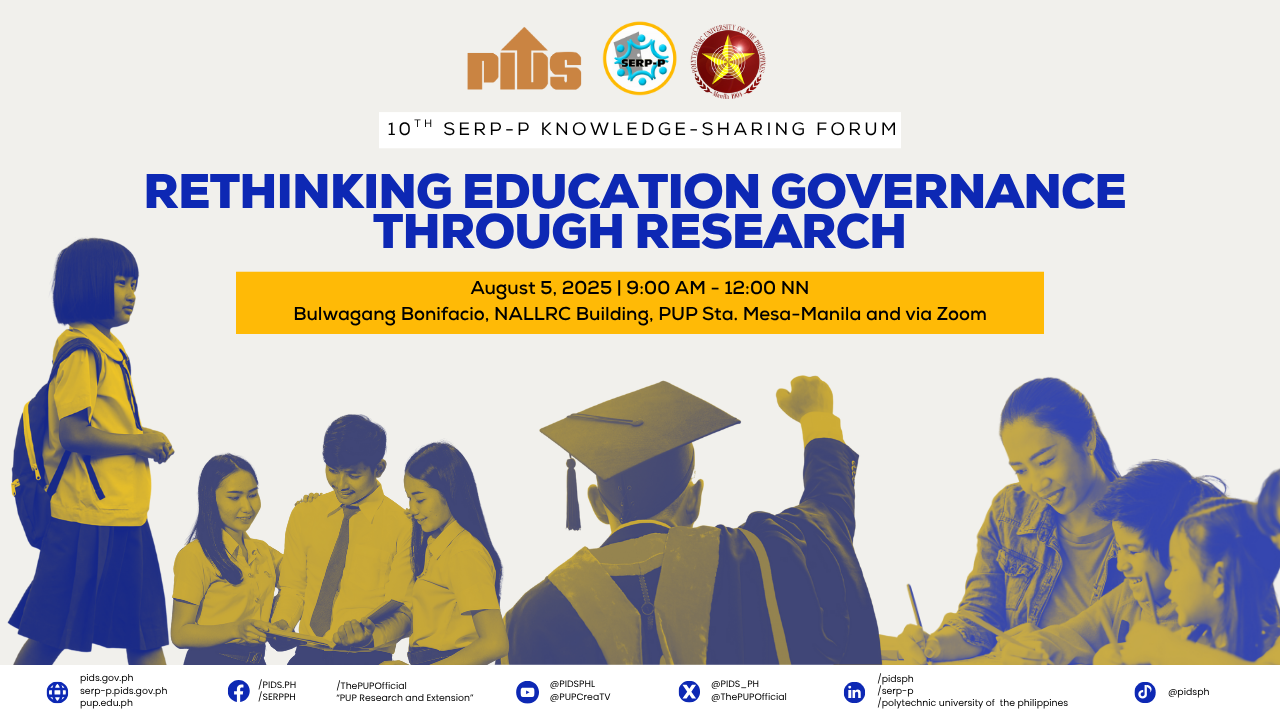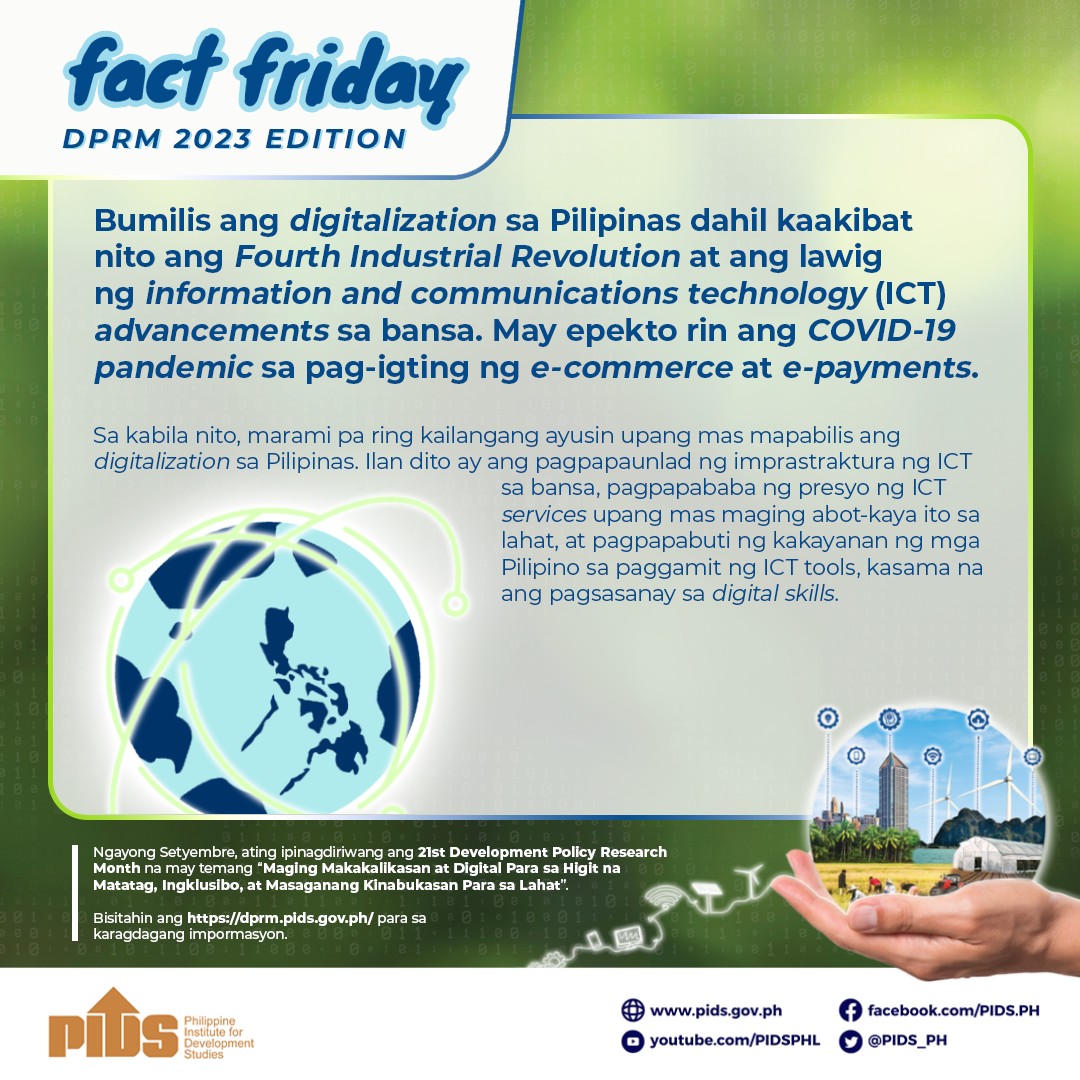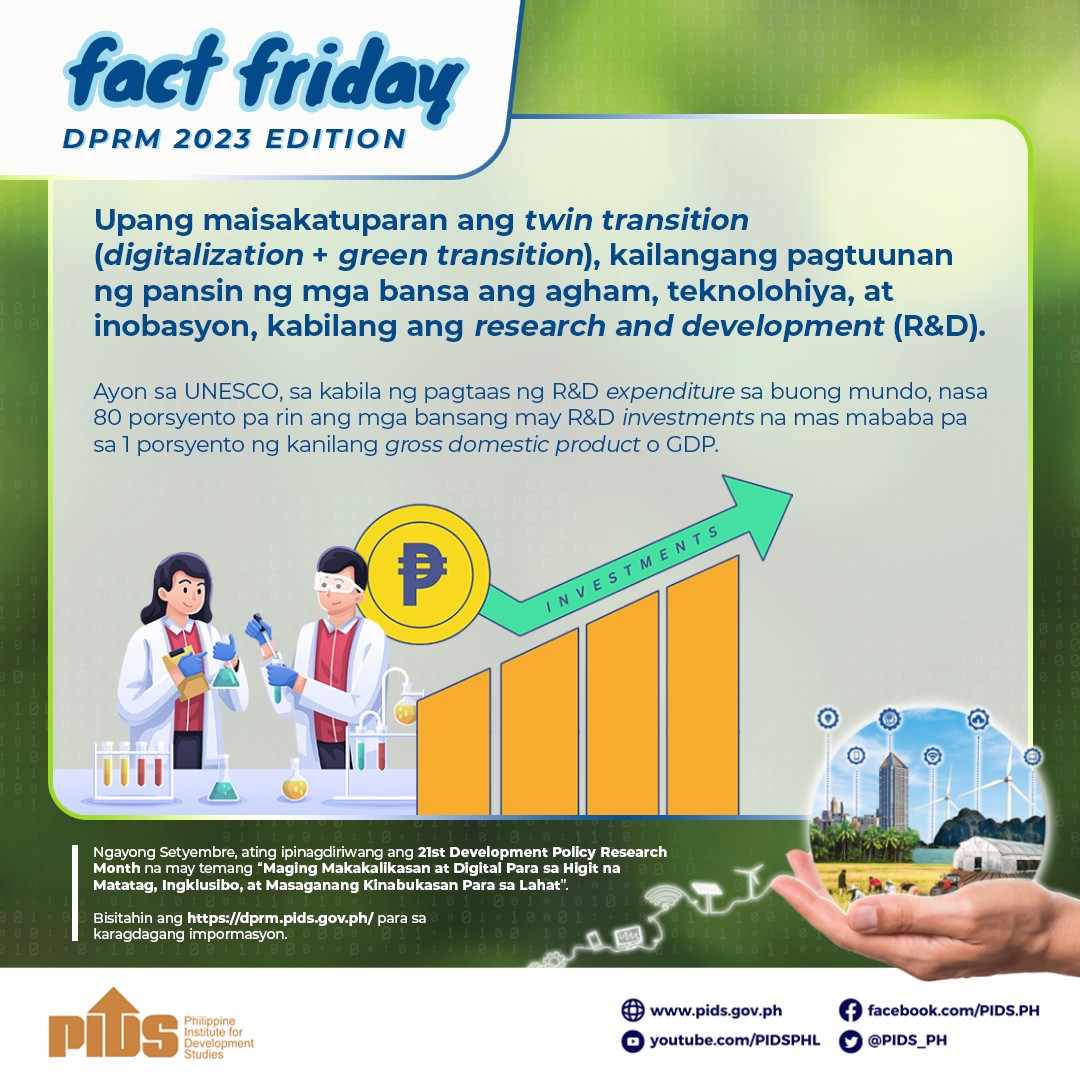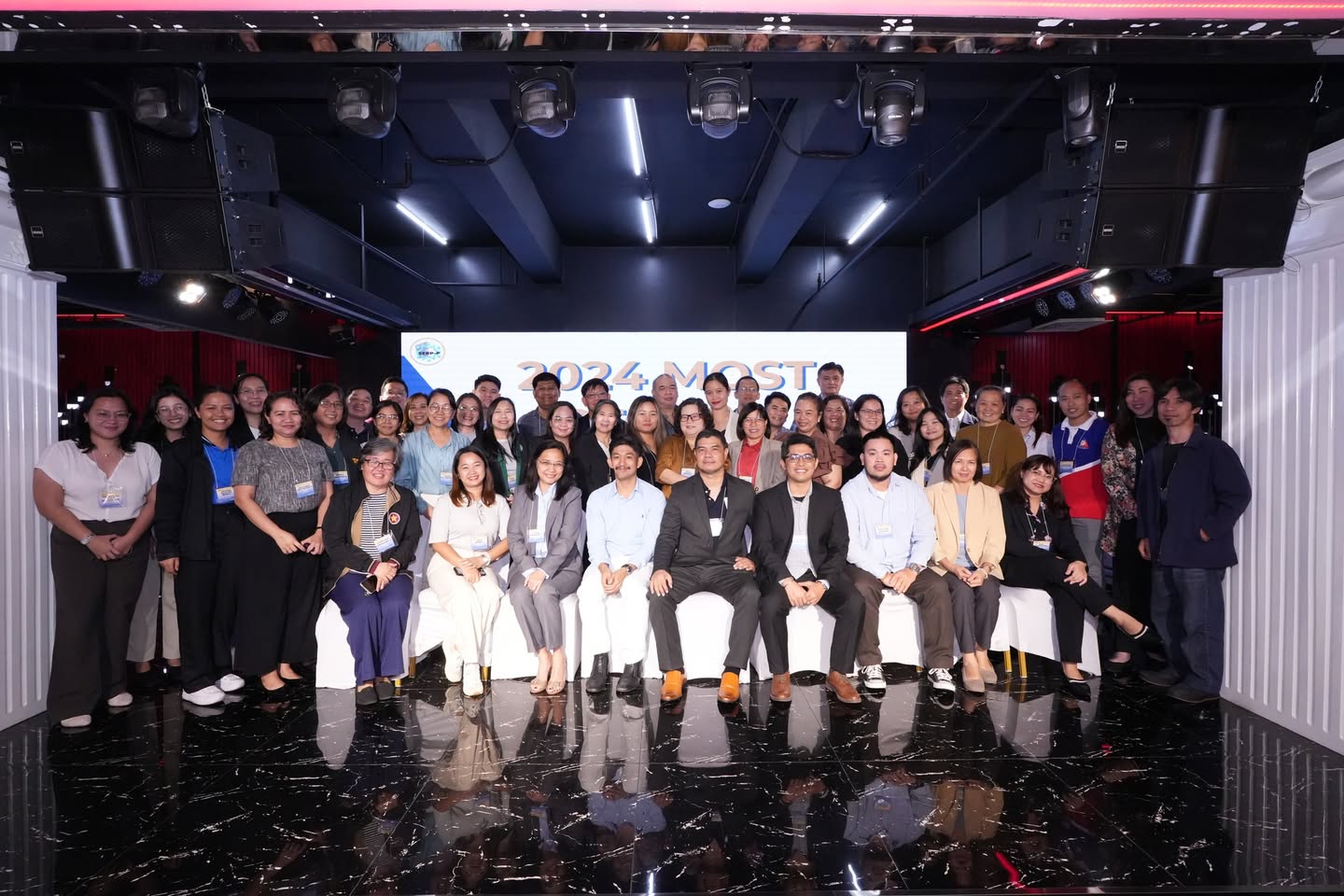
The Socioeconomic Research Portal for the Philippines (SERP-P) of the Philippine Institute for Development Studies (PIDS), the country's first and most extensive online repository of policy research and information, has achieved significant milestones in advancing evidence-based policymaking and promoting open access to research nationwide.
During its recent symposium and annual meeting, themed “Research in Action: Transforming Research Dissemination in the Digital Age”, SERP-P gathered 80 representatives from 28 partner institutions to reflect on its accomplishments and explore pathways for future growth. The afternoon session showcased SERP-P’s milestones and underscored the vital role of strategic partnerships in advancing its mission.
With over 60 active partners and more than 9,600 research materials in its database, the SERP-P Network continues to expand and strengthen its role in shaping evidence-based policymaking and addressing the country’s pressing social and economic challenges.
A key highlight of the event was the recognition of top contributors to the platform. The Central Philippine University was awarded as the top contributor of publications for 2024. The National Economic and Development Authority Region III and the Polytechnic University of the Philippines also received recognition for making significant contributions to the network’s knowledge base. In 2024 alone, over 700 materials have been contributed to the portal. These institutions, alongside 68 SERP-P partners, have helped the country’s first online repository of socioeconomic resources continue to grow since the early 2000s.
Aside from the significant growth in its publication collection, SERP-P has actively strengthened its knowledge-sharing initiatives. In 2024, the network conducted three hybrid knowledge-sharing forums, attracting nearly 2,000 online participants and over 100 onsite attendees. These events provided platforms to promote evidence-based discussion on development issues such as land-use policy, climate change, and the gig economy.
To broaden its reach beyond Metro Manila, SERP-P hosted three regional information caravans (Iloilo, Dumaguete, and Calabarzon region) throughout the year, introducing its resources to institutions nationwide. Through these efforts, the network welcomed four new partners: Davao Oriental State University, University of Batangas, Public-Private Partnership Center, and Miriam College.
The collective effort of SERP-P and its partners have resulted in over 60,000 downloads of SERP-P resources, reflecting its expanding influence and reach among students, policymakers, researchers, and professionals. As an online knowledge resource of socioeconomic materials, it connects users to a diverse range of studies and resources from academic and research institutions, government agencies, and international organizations in the country.
SERP-P remains committed to promoting open access and evidence-based solutions. With its strengthened partnerships and continued commitment to innovation, SERP-P continues to cement its role as a vital resource in the Philippines’ digital research landscape.
Learn more about SERP-P at https://serp-p.pids.gov.ph/.
Photos of the symposium can be viewed at https://bit.ly/SERP-PYearEnd2024.###

